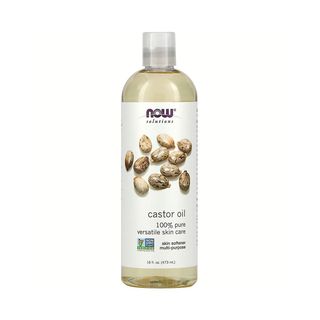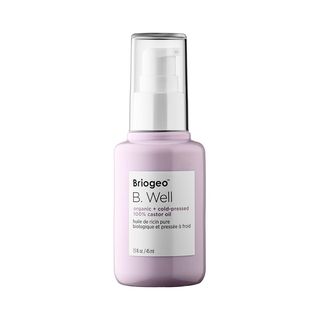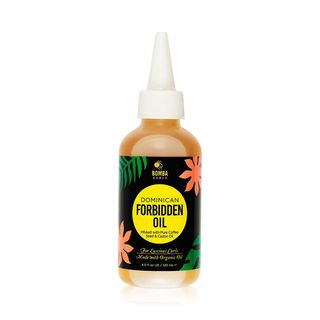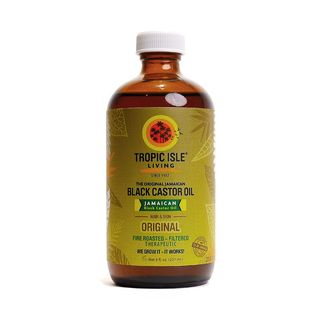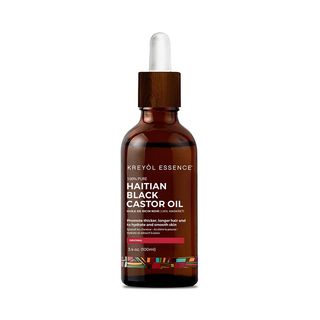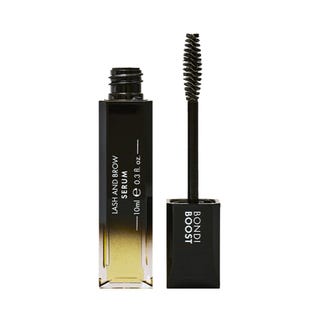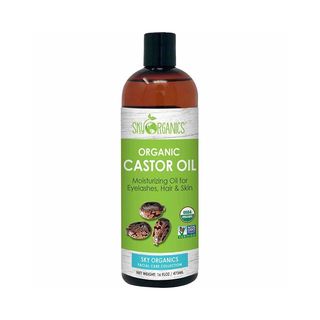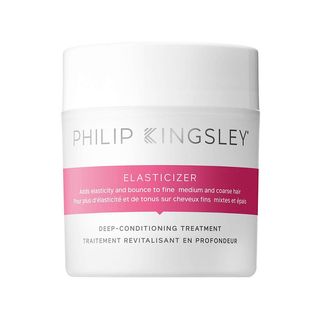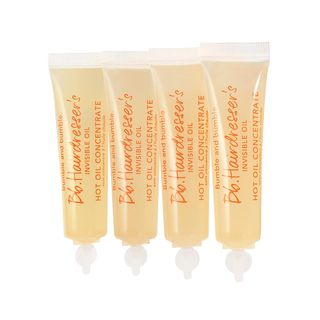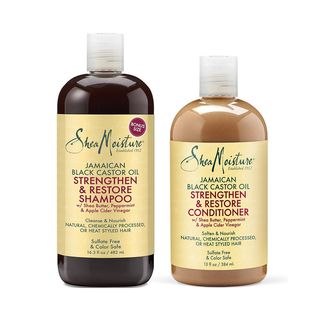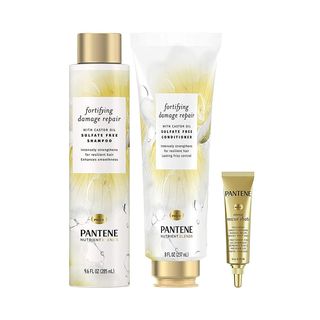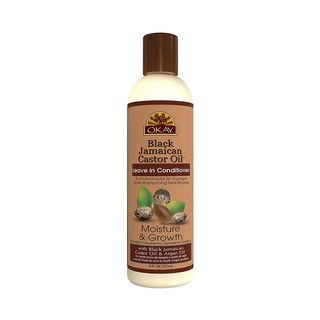Ah, the eternal struggle between wanting long hair and wanting healthy hair wages on. In my quest to achieve mermaid-length hair minus yards of split-ends, I have looked into probably every product that claims to help hair growth. Biotin? Done it. Scalp massages? Why not. Avoid heat? Haha, sure.
If you’ve ever struggled with restoring your edges, excessive shedding, or thinness, there’s a good chance you’ve heard about the alleged miracle hair growth properties of castor oil. A quick search on YouTube yields dozens of positive testimonials that show brows restored to Cara Delevingne’s status and edges even Alicia Keys would envy. But is there any scientific evidence to back castor oil’s growth stimulation claim?
Meet the Experts
- Dr. Nikki Hill, board-certified dermatologist and hair restoration expert
- Bridgette Hill, certified trichologist (that’s a hair doctor, if you didn’t know) and colorist
What is castor oil and what are its benefits?
Castor oil, also known as Ricinus communis, is nutrient-rich vegetable oil from castor beans. Although it originates in tropical east Africa, it is widely used in India and the West Indies for cosmetic and medicinal purposes. Castor oil is usually clear or pale yellow unless derived through roasting or boiling, known as black castor oil.
Down to a molecular level, castor oil is a long-chained fatty acid. “Fatty acids provide essential proteins and nutrients to hair follicles and prevent hair follicle inflammation,” says Bridgette Hill.
Aside from being anti-inflammatory, castor oil has a few other noteworthy properties. “Some benefits of using castor oil include increased gloss or shine of the hair, increased hair shaft flexibility by coating the hair shaft, [and] providing antimicrobial properties,” says Dr. Hill.
Does castor oil stimulate hair growth?
“No studies exist showing castor oil can increase hair growth >1cm/month, which is the FDA standard of hair growth,” says Dr. Hill. “However, I have patients tell me different all the time. Additionally, 90% of castor oil is made up of the fatty acid ricinoleic acid. [It] is known to stimulate the Prostaglandin E2 receptor, leading to blood vessel dilation. When applied to the scalp, increased blood vessel dilation increases the flow of oxygen-rich and nutrient-rich blood to the powerhouse of your follicle, the dermal papilla, or the root of the hair.”
Bridgette Hill agrees that castor oil indirectly promotes hair growth. “Because of the nutrients in castor oil, it protects the hair follicle from outside cellular and tissue invaders that destroy the health and vitality of the hair follicle.”
Is castor oil safe to use on the eyelashes and eyebrows?
The short answer: yes to the eyebrows, but be cautious with the eyelashes. “If there isn’t an allergy to castor oil after patch testing, it is safe to use on the eyebrows,” says Dr. Hill. “There is no safety data about castor oil and eye health, so I would be cautious and speak with an ophthalmologist about applying castor oil in close proximity to the eye.”
How should castor oil be applied to your hair and scalp?
Although castor oil is widely used, it is not meant for everyone. Therefore, the importance of a patch test comes into play again before applying it to your scalp. “Apply a small amount behind the ear or the inner upper arm for a week,” says Dr. Hill.
Once you determine that castor oil is compatible with your scalp, Bridgette Hill has a few suggestions for each hair type:
Fine to medium straight hair: Castor oil can be used as a deep treatment to protect the very ends of your hair fiber, the last 2-3 inches of hair. Use it as a pre-shampoo treatment to help keep the tangles away. Be sure not to overuse—shampoo out and style as desired.
Medium to thick straight/wavy hair: Apply throughout the entire head for an intense pre-shampoo treatment. Add heat or steam for deeper penetration into the hair cuticle.
Wavy to loose curls: I suggest mixing drops of castor oil into conditioners during these hot and humid summer months.
Curly to tightly coiled: I suggest using castor oil as needed throughout your regimen, [as a] pre-shampoo, added treatment, or as a weekly moisturizer. It is essential to perform a proper monthly detox shampoo when using heavy oils like castor oil.
What is the best type of castor oil to use?
Both of our hair experts recommend cold-pressed castor oil.
“Cold-pressed castor oil can be used on the hair shaft. However, black castor oil should be applied only to the scalp,” explains Dr. Hill. “If black castor oil is applied to the hair, a cuticle-sealing technique should be used afterward. Both forms will provide sufficient components of ricinoleic acid.”
When should you avoid castor oil?
It is best to avoid using castor oil on your hair if you’re suffering from dandruff. Both of our experts say it can make the condition worse.
This content is created and maintained by a third party, and imported onto this page to help users provide their email addresses. You may be able to find more information about this and similar content at piano.io
